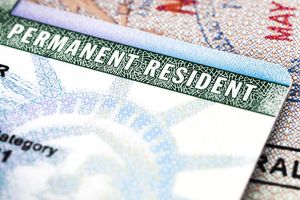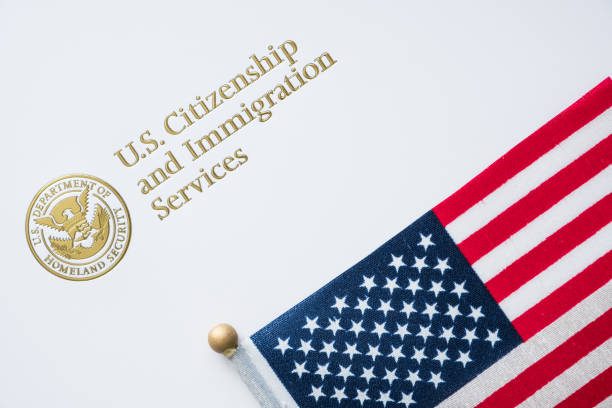As one part of the recent changes made to the H-1B regulations, the Department of Homeland Security issued the Interim Final Rule titled “Strengthening the H-1B Nonimmigrant Visa Classification Program†at 8 CFR Part 214 on October 8, 2020. As previously mentioned, this Interim Final Rule changes the definition of “specialty occupation†at 8 CFR 214.2(h)(4)(ii) and the facts an employer is required to establish to have an H-1B petition approved. This Interim Final Rule is effective December 7, 2020, unless enjoined. As of October 19, 2020, the U.S. Chamber of Commerce, along with the National Association of Manufacturers, the Presidents’ Alliance on Higher Education and Immigration, and other organizations and universities filed a complaint in the U.S. District Court for the Northern District of California against this DHS Rule as well as the DOL H-1B wage rules. (Chamber of Commerce, et al., v. DHS, et al., 10/19/20)
Of the multiple changes to the existing regulatory structure for H-1B visas proposed by this DHS Rule, the complaint focuses on two categories which are particularly troublesome. First, the categories of jobs that will qualify as “specialty occupations†is severely restricted by the amendments to the regulatory definition of “specialty occupation†and related requirements. Specifically, the new definition for “specialty occupation†under the DHS Rule will be the following:
Specialty occupation means an occupation that requires:
(1) The theoretical and practical application of a body of highly specialized knowledge in fields of human endeavor, such as architecture, engineering, mathematics, physical sciences, social sciences, medicine and health, education, business specialties, accounting, law, theology, or the arts; and
(2) The attainment of a U.S. bachelor’s degree or higher in a directly related specific specialty, or its equivalent, as a minimum for entry into the occupation in the United States. The required specialized studies must be directly related to the position. A position is not a specialty occupation if attainment of a general degree, such as business administration or liberal arts, without further specialization, is sufficient to qualify for the position. While a position may allow a range of degrees or apply multiple bodies of highly specialized knowledge, each of those qualifying degree fields must be directly related to the proffered position.
DHS Rule, 85 Fed. Reg. at 63,964 (emphasis added). With the addition of the “directly related†language as mentioned above, this heightened specialization requirement makes it much more difficult for positions to qualify for an H1-B visa. For example, this would mean that positions requiring an engineering degree are not specialty occupations and DHS would instead require specific sub-specialties of engineering. This makes it particularly more difficult in areas where job positions often do not match up exactly with universities’ labels for their degree program, such as in technology fields.
Additionally, the existing regulations state that a position qualifies as a specialty occupation if “[a] baccalaureate or higher degree or its equivalent is normally the minimum requirement for entry into the particular position,†or “[t]he employer normally requires a degree or its equivalent for the position.†8 C.F.R. § 214.2(h)(4)(iii)(A) (emphases added). Under the new DHS Rule, “the petitioner will have to establish that the bachelor’s degree in a specific specialty or its equivalent is a minimum requirement for entry into the occupation in the United States by showing that this is always the requirement.†DHS Rule, 85 Fed. Reg. at 63,926 (emphasis added). This heightened evidentiary requirement would be difficult if not impossible to satisfy for many positions.
The second major category of changes from the DHS Rule is the addition of a new set of restrictions aimed at those who employ and contract employees to work at third-party work sites. The new definition of the “employer-employee relationship†would differentiate between work performed at the employer’s worksite and work performed at a third-party worksite for the first time. See DHS Rule, 85 Fed. Reg. at 63,931, 63,964. This disproportionately affects employers such as consulting firms where employees commonly perform their work at the physical worksite of the firm’s clients. It will also have a particularly detrimental effect for American businesses in areas such as the technology sector where companies rely on the ability to utilize contract employees. Furthermore, where the current regulations allow H1-B status to be granted for a period of up to three years, the new rule sets a 1-year maximum validity period in which the individual will be working at a third-party worksite. DHS Rule, 85 Fed. Reg. at 63,935.
These regulatory changes are clearly an effort to limit the range of positions that would qualify as a “specialty occupation†as well as the range of individuals qualified to hold the positions that do meet the new definition. Moreover, the DHS Rule applies to new petitions as well as petition extensions filed on or after the effective date. This means that many individuals who were previously approved and have established lives in reliance upon those determinations may no longer qualify for their visas to be renewed. The complaint filed in the U.S. District Court for the Northern District of California requests that the Court vacate and set aside the DHS Rule, but also that it be enjoined pending litigation.
Marissa Young
Associate Attorney- Dallas, TX
Tidwell, Swaim & Farquhar



